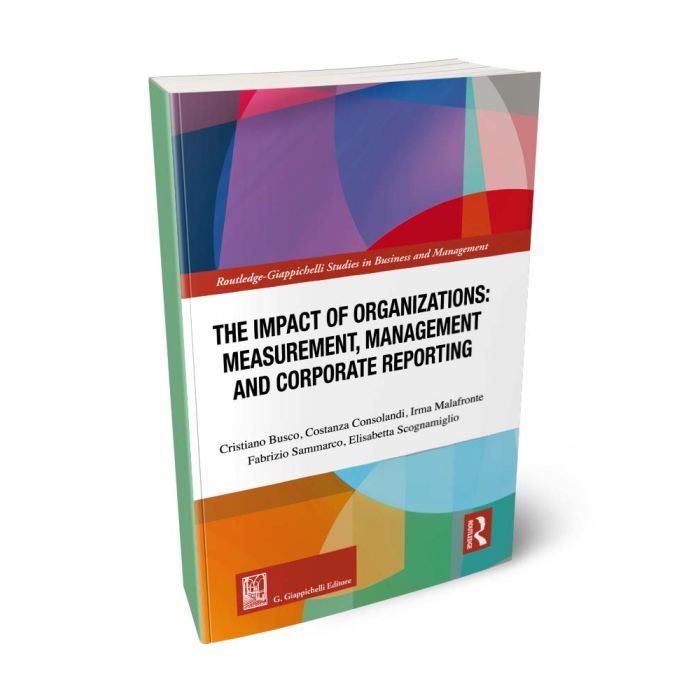Less of 10 pieces available
Receive it within 0 1 January

The Impact of Organizations: Measurement, Management and Corporate Reporting
| ISBN | 9791221103748 |
|---|---|
| Pubblication year | 2023 |
| Pubblication month | Agosto |
| Edition | I |
| Serie | Routledge-Giappichelli Studies in Business and Management |
| Format | Copertina Rigida |
| Pages |










